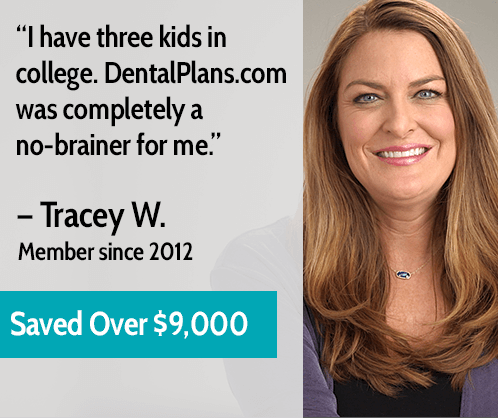
Unlock Affordable Health Security: Fear Not in 2025 with Cheap Health Insurance for the Self-Employed!
“The greatest wealth is health.” – Virgil This quote encapsulates the undeniable truth that your health is a foundation upon which you build your life and career. For self-employed individuals, finding cheap health insurance is crucial not just for peace of mind but also for protecting their business and financial assets.
Free Marketplace Research
Avoid choosing the wrong plan. Allow us to research all your options based on your needs and budget.
Fill out the form bellow, and we will send you our best recommendations straight to your inbox!
The Rising Costs of Health Insurance for Self-Employed Individuals
Understanding the ACA Marketplace Challenges
Health insurance premiums in the ACA marketplace have seen a sharp increase in recent years, making affordable options harder to come by for those who do not qualify for subsidies. Self-employed individuals, in particular, often face significant financial strain when purchasing health insurance. Unlike traditional employees, who may have access to group plans, freelancers and independent contractors are left to navigate the murky waters of the ACA alone, often incurring substantial costs that can impact their overall financial stability.
Identifying Cheaper Alternatives
For many small business owners and self-employed professionals, the soaring premiums associated with the ACA serve as a clarion call for alternatives. Private health insurance options provide a potentially cheaper solution which caters specifically to the needs of individuals such as consultants, realtors, beauticians, freelancers, and many others. With customizable plans, individuals can curate health insurance that fits their financial situation and healthcare needs without breaking the bank.

Private Health Insurance: A Viable Option
Flexibility in Health Plans
One of the primary benefits of private health insurance is the considerable flexibility it offers—especially valuable for self-employed individuals. With the ability to customize premiums, deductibles, and out-of-pocket expenses, insurance seekers can create a plan tailored specifically to their lives and work situations. By choosing plans that suit their healthcare usage, individuals can effectively lower overall costs while ensuring necessary protection is maintained.
Customization for Your Unique Needs
Private health insurance allows self-employed individuals to adjust out-of-pocket maximums according to their comfort levels. High deductibles may lower premiums, making it a reasonable option for those in good health, while comprehensive coverage can serve as a safety net for those with ongoing health concerns. In this manner, each individual can select coverage that not only safeguards their health but also supports their financial wellness.

The Financial Impact of Cheap Health Insurance
Reducing Financial Strain
For self-employed individuals, healthcare costs can significantly impact business viability and personal finances. Cheaper health insurance options can help eliminate the stress often associated with high medical expenses. Having an affordable plan provides the freedom to seek necessary medical care without the anxiety of overwhelming bills, ultimately enhancing productivity and improving overall health outcomes.
Supporting Long-Term Financial Goals
Mitigating healthcare costs through cheap health insurance solutions not only secures immediate health needs but also has long-term financial implications. Ensuring health coverage prevents unexpected medical emergencies from derailing personal financial stability. Self-employed professionals can focus on growing their business and building their futures without the looming threat of crippling medical debt.
Get a hussle-free consultation
Peace of Mind for Business Owners
The Importance of Stable Health Coverage
Having the right health insurance coverage is vital for self-employed individuals striving for financial security. When healthcare expenses are expected and manageable, business owners can operate confidently, knowing their health is safeguarded. Cheap health insurance for self employed is not just an expense; it’s an investment in personal and business well-being.
Empowerment through Health Insurance
Cheap health insurance can empower self-employed individuals by relieving the constant worry about healthcare costs. When business owners know they can access necessary care, it allows them to step away from their work responsibilities to concentrate on their health. This mental relief fosters a more productive work environment and contributes to emotional well-being, making for a more fulfilling life overall.

Why Consult a Professional?
Expert Insights Tailored to Your Needs
Navigating the intricate world of health insurance can be a daunting task for self-employed individuals. This is where the value of consulting with a licensed health insurance expert comes into play. A knowledgeable agent can provide invaluable guidance in identifying the most appropriate and cost-effective options available, specifically tailored to the individual’s unique circumstances.
Saving Time and Money
Consulting with professionals not only helps save time but can also lead to significant cost reductions in health insurance spending. By avoiding common pitfalls and mistakes that many face, business owners can maximize their savings and receive ongoing support throughout their healthcare journey. Understanding the nuances of cheap health insurance for self employed is essential for creating a solid foundation of financial security and health stability.

Conclusion
Choosing the right cheap health insurance for self employed individuals is crucial for ensuring health stability and financial peace of mind. By exploring private insurance options, utilizing flexibility, and consulting experts, self-employed professionals can create affordable solutions tailored to their unique situations. Now is the time to consider your options and take control of your health insurance needs.
For immediate assistance, call or text (407) 588-0505!
FAQ
1. What is cheap health insurance for self employed?
Cheap health insurance for self employed refers to affordable coverage options tailored for freelancers, independent contractors, and small business owners. These plans often provide flexibility in premiums and coverage levels to meet individual needs.
2. How can I reduce my health insurance premium as a self-employed person?
Reducing health insurance premiums can be achieved by opting for higher deductibles, shopping around for different plans, or considering private insurance that is customized for your specific health needs.
3. Are there any tax benefits associated with self-employed health insurance?
Yes, self-employed individuals may qualify to deduct 100% of their health insurance premiums from their taxable income, effectively lowering their tax burden.
4. Can freelancers access group health plans?
Typically, freelancers do not have access to traditional group health plans. However, some associations and industry groups may offer group plans to their members, which can provide more affordable options.
5. How do I know which health insurance plan is right for me?
Determining the right health insurance plan requires evaluating your health needs, budget, and preferences on coverage options. Consulting with a licensed health insurance expert can help streamline this process and provide tailored advice.






